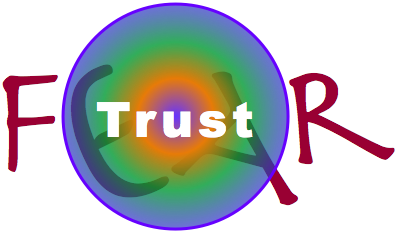 Customer success and experiential social media identifies three pitfalls that too often prevent customer success initiatives from attaining their potential for improving customer experience. In case you’re not familiar with the customer success movement, I outline its origins and scope, so you can appreciate the pitfalls and avoid them. Customer success and experiential social media identifies three pitfalls that too often prevent customer success initiatives from attaining their potential for improving customer experience. In case you’re not familiar with the customer success movement, I outline its origins and scope, so you can appreciate the pitfalls and avoid them.
If you’d like to watch this post instead of reading it, just click its thumbnail.
[…]
 Reflections on CSRA Ten Years in Business gives you three glimpses into why I built a firm to pioneer in experiential social media. I’m amazed that we embarked on our 11th year in February 2017! Here I’ll reflect on where we’ve been and where we’re going. Reflections on CSRA Ten Years in Business gives you three glimpses into why I built a firm to pioneer in experiential social media. I’m amazed that we embarked on our 11th year in February 2017! Here I’ll reflect on where we’ve been and where we’re going.
If you’d like to watch this post instead, just click the thumbnail button.
[…]
 How CSRA Builds Trust at Scale shares some of the most surprising and useful things I’ve learned while pioneering experiential social media since 2006. In this post, I’ll reveal how experiential social media teams build trust by breaking some rules in social media. How CSRA Builds Trust at Scale shares some of the most surprising and useful things I’ve learned while pioneering experiential social media since 2006. In this post, I’ll reveal how experiential social media teams build trust by breaking some rules in social media.
If you’d like to watch this post instead of reading it, click the thumbnail button!
[…]
 Three Powerful Experiential Social Media Lessons shares three surprising breakthrough insights I’ve learned while practicing experiential social media. This is one of the videos I’ve made to share some of the most useful things I’ve learned since 2006. Three Powerful Experiential Social Media Lessons shares three surprising breakthrough insights I’ve learned while practicing experiential social media. This is one of the videos I’ve made to share some of the most useful things I’ve learned since 2006.
If you’d like to watch this post instead of reading it, click the thumbnail button!
[…]
 How to Protect Yourself from Pervasive Surveillance and Control shows how you can act to protect yourself, your family and your community from the rise of digitally enabled surveillance and control. How to Protect Yourself from Pervasive Surveillance and Control shows how you can act to protect yourself, your family and your community from the rise of digitally enabled surveillance and control.
Privacy and Autonomy in the Digital Age is a series I’m writing to share my insights into disruptive risks that we face, individually and collectively, due to the digitization of the world. As I wrote in Part1, my technology adoption crystal ball says that the convergence of pervasive digital data, smart devices and their centralized [cloud] control enables unprecedented surveillance and control of people at a very low cost. This post offers various suggestions for mitigating the risks, while Police State Scenarios (Part3) discusses ways that collective permanent loss of autonomy could unfold.
[…]
 In Healing Business, I’ll share why I think business needs healing and how CSRA is doing it with experiential social media. Business is wounded from a human point of view because it’s become very impersonal; large organizations don’t mean to, but they treat employees and customers as numbers because they don’t know or trust them. Experiential is a practical way to change that. In Healing Business, I’ll share why I think business needs healing and how CSRA is doing it with experiential social media. Business is wounded from a human point of view because it’s become very impersonal; large organizations don’t mean to, but they treat employees and customers as numbers because they don’t know or trust them. Experiential is a practical way to change that.
If you’d like to watch this post instead of reading it, click the thumbnail button!
[…]
 11 Celebration summarizes my reflections on CSRA’s first decade in business, and my vision for our next decade. We’ve been pioneering in experiential social media and social business transformation since I founded the firm in February 2006. 11 Celebration summarizes my reflections on CSRA’s first decade in business, and my vision for our next decade. We’ve been pioneering in experiential social media and social business transformation since I founded the firm in February 2006.
It’s difficult to encapsulate ten years of learnings, but that hasn’t stopped me from trying! This page will reprise some of my favorite posts, and it will feature a series of videos I’ve made in which I explain where we’ve been and where we’re going. This post will change frequently, so please consider it a work in progress.
[…]
 On human experience invites you to examine common marketing practices from a human experience perspective. It expands part of a presentation I gave at the University of Chicago Booth that the audience experienced as mind-bending based on their facial expressions. On human experience invites you to examine common marketing practices from a human experience perspective. It expands part of a presentation I gave at the University of Chicago Booth that the audience experienced as mind-bending based on their facial expressions.
Quite by accident I’ve happened on a rare view of humanity while practicing experiential social media during the last ten years. Experiential’s core research process involves conducting ethnographic research of thousands of people in specific situations. I analyze human behavior in communities in digital public, and it’s very rich, nuanced and complex. Ethnographic yields unparalleled qualitative and quantitative insights into behavior and human experience.
Experiential consistently reveals that many marketing practices repel people rather than attracting them because the environment in which marketing is practiced has completely changed from when these practices developed. Marketing creates mistrust and pushes people away, as I’ll show below. This post attempts to reveal this anachronism to you, so you can correct your practices and take the advantage from your competitors.
[…]
 [Updated] Many businesses live in fear, and how to break free reveals how fear and risk can be sharply reduced by increasing trust among employees, customers and partners. [Updated] Many businesses live in fear, and how to break free reveals how fear and risk can be sharply reduced by increasing trust among employees, customers and partners.
I have learned many surprising things while practicing experiential social media, but one of the most astounding is the realization that most business practices, especially those that concern people, are grounded in fear and mistrust. This ties businesses in knots, but few people realize it because it’s accepted as normal. This post aims to open your eyes, so you can start noticing how fear and mistrust operate in your firm. Then I’ll offer numerous ideas that can help you to reduce fear and risk by increasing trust.
[…]
 Ethnographic research for design explains how to use advances in ethnographic research of social media to design products, services, experiences… anything—while getting better results at lower risk. Ethnographic research of social media is breakthrough for designers in the “design stack” in which I’ve includedArchitecture/Interior Design, Product Design, User Experience Design/Interaction Design, UX Strategy, Service Design and Customer Experience Design. Ethnographic research for design explains how to use advances in ethnographic research of social media to design products, services, experiences… anything—while getting better results at lower risk. Ethnographic research of social media is breakthrough for designers in the “design stack” in which I’ve includedArchitecture/Interior Design, Product Design, User Experience Design/Interaction Design, UX Strategy, Service Design and Customer Experience Design.
Designers in all fields lament clients’ resistance to funding robust research. Traditional design research methods are often grounded in asking proposed users explicit questions, and self-reported responses vary significantly from actual behavior despite respondents’ best intentions. Similarly, shadowing, service safaris, “a day in the life,” and other analog research methods are costly and slow. Sample sizes are necessarily small because scaling analog methods greatly multiplies the budget and length of the research phase. Ethnographic research of social media changes the game because it studies proposed users’ actual behavior in digital public when they’re having heated discussions about the outcomes they want when the proposed product, service, or process is useful to them. It […]
|
|
 Customer success and experiential social media identifies three pitfalls that too often prevent customer success initiatives from attaining their potential for improving customer experience. In case you’re not familiar with the customer success movement, I outline its origins and scope, so you can appreciate the pitfalls and avoid them.
Customer success and experiential social media identifies three pitfalls that too often prevent customer success initiatives from attaining their potential for improving customer experience. In case you’re not familiar with the customer success movement, I outline its origins and scope, so you can appreciate the pitfalls and avoid them.
 Reflections on CSRA Ten Years in Business gives you three glimpses into why I built a firm to pioneer in experiential social media. I’m amazed that we embarked on our 11th year in February 2017! Here I’ll reflect on where we’ve been and where we’re going.
Reflections on CSRA Ten Years in Business gives you three glimpses into why I built a firm to pioneer in experiential social media. I’m amazed that we embarked on our 11th year in February 2017! Here I’ll reflect on where we’ve been and where we’re going. How CSRA Builds Trust at Scale shares some of the most surprising and useful things I’ve learned while pioneering experiential social media since 2006. In this post, I’ll reveal how experiential social media teams build trust by breaking some rules in social media.
How CSRA Builds Trust at Scale shares some of the most surprising and useful things I’ve learned while pioneering experiential social media since 2006. In this post, I’ll reveal how experiential social media teams build trust by breaking some rules in social media. Three Powerful Experiential Social Media Lessons shares three surprising breakthrough insights I’ve learned while practicing experiential social media. This is one of the videos I’ve made to share some of the most useful things I’ve learned since 2006.
Three Powerful Experiential Social Media Lessons shares three surprising breakthrough insights I’ve learned while practicing experiential social media. This is one of the videos I’ve made to share some of the most useful things I’ve learned since 2006. How to Protect Yourself from Pervasive Surveillance and Control shows how you can act to protect yourself, your family and your community from the rise of digitally enabled surveillance and control.
How to Protect Yourself from Pervasive Surveillance and Control shows how you can act to protect yourself, your family and your community from the rise of digitally enabled surveillance and control. In Healing Business, I’ll share why I think business needs healing and how CSRA is doing it with experiential social media. Business is wounded from a human point of view because it’s become very impersonal; large organizations don’t mean to, but they treat employees and customers as numbers because they don’t know or trust them. Experiential is a practical way to change that.
In Healing Business, I’ll share why I think business needs healing and how CSRA is doing it with experiential social media. Business is wounded from a human point of view because it’s become very impersonal; large organizations don’t mean to, but they treat employees and customers as numbers because they don’t know or trust them. Experiential is a practical way to change that. 11 Celebration summarizes my reflections on CSRA’s first decade in business, and my vision for our next decade. We’ve been pioneering in experiential social media and social business transformation since I founded the firm in February 2006.
11 Celebration summarizes my reflections on CSRA’s first decade in business, and my vision for our next decade. We’ve been pioneering in experiential social media and social business transformation since I founded the firm in February 2006. On human experience invites you to examine common marketing practices from a human experience perspective. It expands part of a presentation I gave at the University of Chicago Booth that the audience experienced as mind-bending based on their facial expressions.
On human experience invites you to examine common marketing practices from a human experience perspective. It expands part of a presentation I gave at the University of Chicago Booth that the audience experienced as mind-bending based on their facial expressions. [Updated] Many businesses live in fear, and how to break free reveals how fear and risk can be sharply reduced by increasing trust among employees, customers and partners.
[Updated] Many businesses live in fear, and how to break free reveals how fear and risk can be sharply reduced by increasing trust among employees, customers and partners. Ethnographic research for design explains how to use advances in ethnographic research of social media to design products, services, experiences… anything—while getting better results at lower risk. Ethnographic research of social media is breakthrough for designers in the “design stack” in which I’ve includedArchitecture/Interior Design, Product Design, User Experience Design/Interaction Design, UX Strategy, Service Design and Customer Experience Design.
Ethnographic research for design explains how to use advances in ethnographic research of social media to design products, services, experiences… anything—while getting better results at lower risk. Ethnographic research of social media is breakthrough for designers in the “design stack” in which I’ve includedArchitecture/Interior Design, Product Design, User Experience Design/Interaction Design, UX Strategy, Service Design and Customer Experience Design.